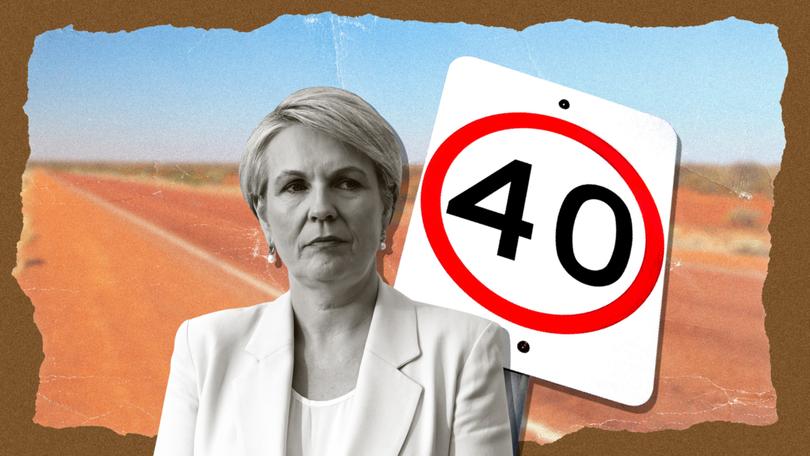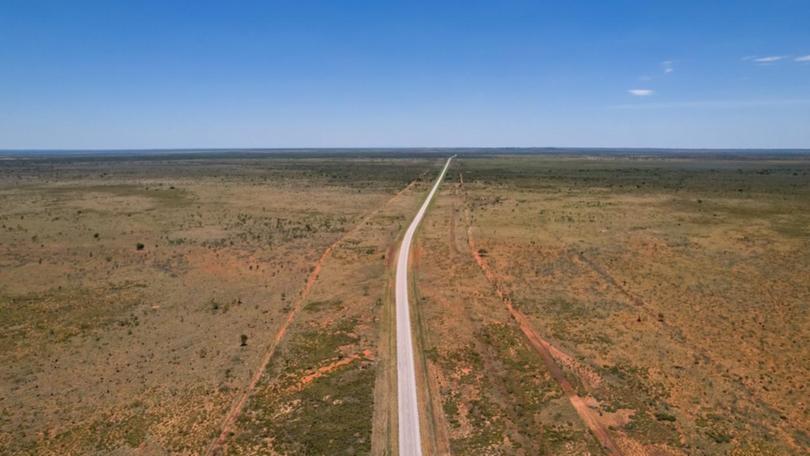NATURE POSITIVE: Controversial green laws want a 40km/h speed limit for FIFO workers in mining areas
A leaked document shows the Albanese Government is planning to put a 40km/h speed limit across highways in Australia’s sparsely populated mining regions as part of controversial ‘Nature Positive’ laws.

A leaked document from a peak mining group shows the Albanese Government is planning to put a 40km speed limit across highways in Australia’s sparsely populated and economically vital mining regions, putting billions of dollars at risk.
A submission from the Association of Mining and Exploration Companies in response to Federal Labor plans to establish a “Pilbara Bioregion” has labelled the proposals “a concern” and rife with “inconsistencies”.
The documents show Federal Labor is planning to carve up various areas across Australia into biospheres or bioregions — each with its own strict regulations — as part of Labor’s secretive and controversial so-called “Nature Positive Plan”.
Sign up to The Nightly's newsletters.
Get the first look at the digital newspaper, curated daily stories and breaking headlines delivered to your inbox.
By continuing you agree to our Terms and Privacy Policy.The Nature Positive Plan constitutes a radical reform of the Environment Protection and Biodiversity Conservation Act.
Among the planned restrictions for the Pilbara Bioregion is a 40-kilometre-per-hour speed limit on large stretches of national and state highways across the region in WA’s north to “mitigate damage to fauna”.
The current speed limit across the vast majority of these highways is 110km/hr and it is currently illegal to go as slow as 40km on these roads for safety reasons.
Changes to speed limits would also wipe off billions in economic value for Australia. The Pilbara region is the powerhouse producer of iron ore and other key natural resources exports, responsible for about $111.5 billion of output annually and about 60,000 jobs.
A plethora of miners use the highways across the Pilbara to get their minerals and metals from pit to port and a large reduction in the speed limit would substantially lower their collective production output.

Among the other issues raised in the AMEC submission includes strict requirements for miners in the Pilbara to establish comprehensive Cane Toad management requirements, which would make these companies responsible for upgrading nearby agricultural assets — such as pastoral water points — which they typically do not own.
On top of this, Cane Toads are yet to be found in material numbers within the Pilbara region.
Miners, farmers and even green groups have so far voiced their opposition to the Nature Positive reforms, which have been shrouded in secrecy away from public scrutiny, with industry stakeholders only being briefed in Canberra in lock-up style sessions where laptops and phones are forbidden.
The president of the National Farmers’ Federation David Jochinke told The Nightly on Tuesday that farmers are “extremely concerned” about the potential detriment to agriculture from the reforms.
“Already the Environment Protection and Biodiversity Conservation Act is not well understood, is difficult to manage at a practical, landscape level, and often conflicts with state-based legislation,” the boss of the country’s peak organisation for farmers said.
“The land is farmers’ lifeblood, they want to manage it sustainably so they can grow food and fibre for generations to come.”
On Sunday the boss of the Chamber of Minerals and Energy WA — one of the nation’s most prominent lobby groups for miners — said the legislation carried potentially major ramifications for the resources sector.
“If the Federal Government gets it wrong, it risks not only the ongoing economic contribution of the sector’s existing operations but also $93 billion in future investment projects and associated jobs,” CME chief executive officer Rebecca Tomkinson said.
Green groups have also voiced their concerns, with The Australian Conservation Foundation stating a planned Federal environment watchdog would be “undermined from the very start” if the Environment Minister was handed unfettered power to approve projects.
